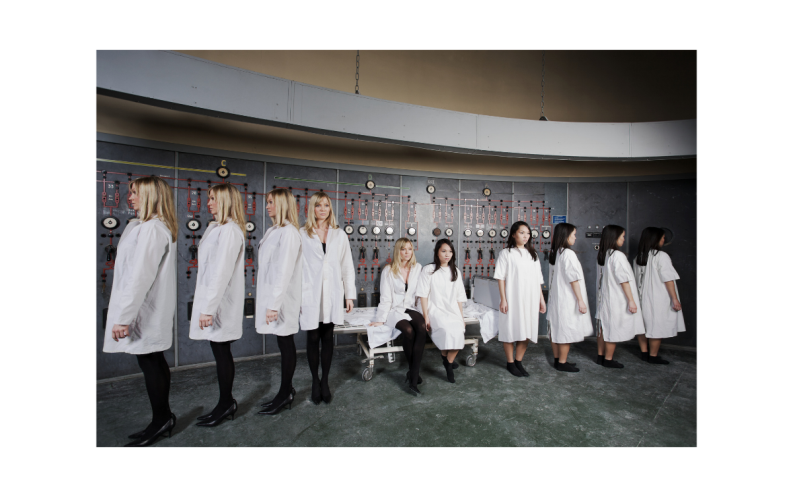Introduction
People have been dreaming of immortality since ancient times. Among futuristic ways to achieve it, one can be possibly implemented these days by means of modern technologies. Cloning can be shortly described as replication of one’s genes to recreate them or a part of their body. Such technology is bound to change humanity once and for all, but it is forbidden to clone humans for a good reason. Unfortunately, the use of cloning on human beings may bring about severe repercussions that are likely to destroy society and put an end to the natural rights.
Main body
First of all, there is a strong possibility a clone would be hard to tell from the owner of the genes. This may lead to misunderstandings considering law issues. If two people have absolutely identical fingerprints, it will be complicated to find out who exactly committed the crime. In this case, the offender is likely to cheat on the police to make the innocent be imprisoned and then continue to break the law. Such a situation appears to be unfair and needs a proper solution.
Indeed, twins are people who can be referred as natural clones because their genes are almost identical. According to recent studies, the cases of sexual assault performed by one of the twins can hardly be investigated and demand the new comprehensive DNA sequencing technology that is not widely spread (1). Unfortunately, it is unlikely to work the same way with actual clones. It will probably take too much time for scientists to shed light on the riddle of how to differentiate between them.
Secondly, there is a problem concerning clones’ social roles. If a person possesses a clone, it is unclear what their relationship would be. Probably, the desire to have a clone may originate from people’s laziness. They are prone to make others perform their duties for them. In this case, one may equate the wish to be cloned to the craving for slaves. In contrast to twins, a clone’s master will be lawfully vested with human rights under international declarations and their national constitution. Still, there is nothing said about equality between humans and clones. Therefore, clones should be primarily recognized as human beings to be protected from violence and exploitation. It may stir a never-ending discussion while the deprived would suffer from infringement against sovereignty and security.

However, clones’ masters cannot be generally expected to exploit clones for the sake of servile labor. There is also organ transplantation that needs cheap material for saving people’s lives. One may imagine doctors growing organs from a patient’s cells in the laboratory. Meanwhile, it seems to be an exemplary image of how these experiments should be done. Unfortunately, there will always be people trying to spare money and start up illegal firms to breed clones, keep them imprisoned, and export for slaughter at low prices. Such cruelty cannot be advocated as the only possibility to give a helping hand to people who cannot afford high-priced medical services. One’ life should not be taken for the sake of other’s life preservation. It is generally agreed that a clone is an intelligent being even if they are not considered to be humans.
In addition, the level of social differentiation may rise to unprecedented figures. There has always been a problem that, being not flawless, the health care system does not lavish poor people with creature comforts. Those, who are prescribed organ transplantation these days, have to wait many years for a perfect match, being on the verge of dying simultaneously. Although, billionaires like David Rockefeller have an opportunity to waste tons of money on new organs to postpone death. There is no proof that he bribed medical officials so far, but it could be inferred.

The lust for eternal life cannot be fully satisfied without resorting to unfair play. If one has lived a very long life and has a chance to save somebody, it would be far more sensible and generous to grant somebody else this chance. Instead of charity, old rich men prefer to prolong their own torment and senility. Unfortunately, in case there are clones to be used, the industry would hardly change for the better. When it comes to money, there are always stakeholders willing to profit rather than save. It may lead to a drastic chasm between the members of different social groups because some people will possess invulnerability, whereas others will be deprived of such things.
Another idea concerns procreation by clones as a means to bring dead people to life. Unfortunately, not only older people die, but also young and full of life, especially children. If there is an opportunity to clone a child, their desperate parents will obviously resort to the tough measure. Being mad because of crushing grief, they will not be able to consider all possible challenges they may face in the future. For instance, according to Rishabh, a cloned child will be prone to have low self-esteem and depressive syndrome (2). There is no sense in trying to bring somebody back using clones because the unique personality cannot be restored. It would be another soul chained in a body that belongs to the dead person. Thus, there is nothing left to do but accept the fact that one has to enter Heaven, not apply genetic engineering.
Nevertheless, cloning experiments may be seen from a different perspective. Scientists name many areas where clones are likely to be helpful. They claim that this technology is advantageous if it is accurately used (3). The point is that society should be mature enough to provide the legal and financial basis for such experiments. After all the necessary preparations will be done, cloning is sure to take place in people’s everyday lives. It is of great importance that experiments on plants and animals are not forbidden. Therefore, by the day cloning will be legal, people will have learned many new things to minimize the risks.
Conclusion
All things considered, humanity is not yet ready for cloning because there are too many breaches of the law to be expected. Implementing a very advanced technology presupposes some measures to foresee the probable impact on society. Admittedly, new laws should be invented to protect both clones and ordinary people. Besides, there is a financial gap that is to be reduced for people to have an opportunity to use the fruit of cloning, regardless of the balance on the bank account. One day cloning will become a part of people’s life that is why it is of paramount importance to prevent its use for immoral purposes. Among them is immortality that can be gained only at somebody’s expense. Such cases are bound to be forbidden in the future.
Works Cited
Krawczak, Michael, et al. “Distinguishing Genetically between the Germlines of Male Monozygotic Twins.” American Politics Research, vol. 14, no 12, 2018, pp 1-3.
Rushab, Jain, et al. “Human Cloning: Ethical Issues & Legal Implications.” Indian Journal of Law and Legal Research, vol.2, no 1, 2021, pp 6-7.
Prianto, Youwono, et al. “Ethical Aspects and Laws of Reproduction Cloning in Humans.” Advances in Social Science, Education and Humanities Research, 2020.
Canva. Canva Pty Ltd, 2013. Web.